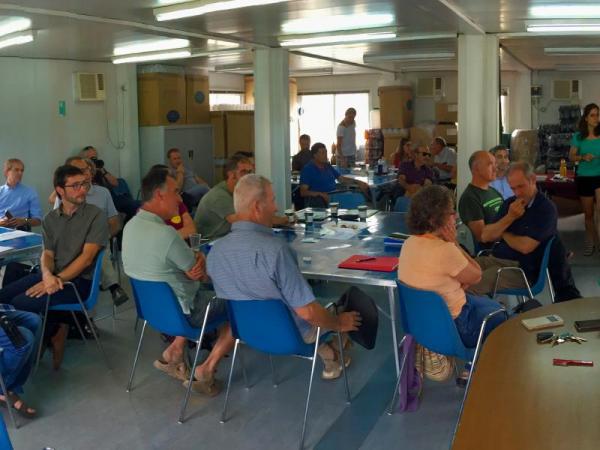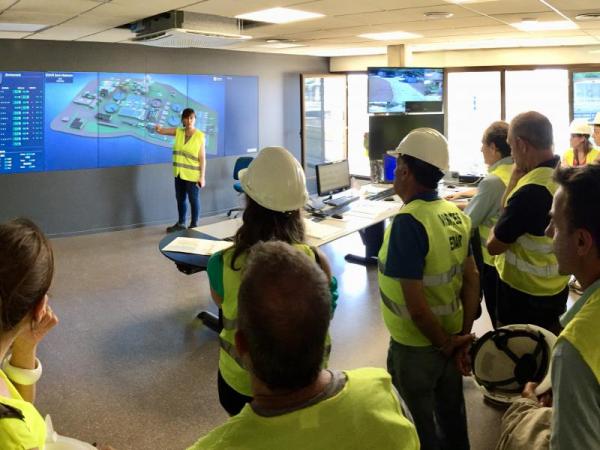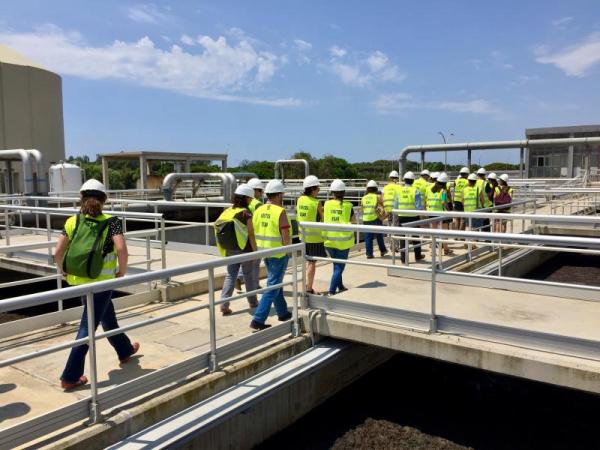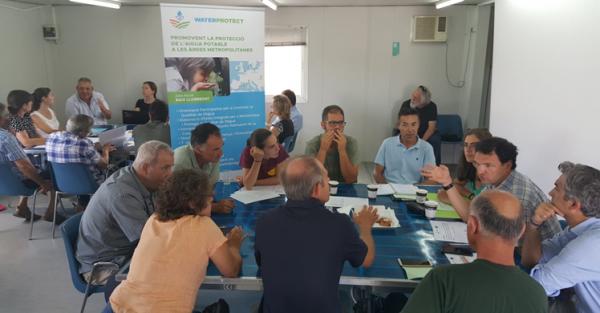Agriculture is threatened in Mediterranean climate areas such as Baix Llobregat, our Spanish action lab. Here, the water demand is expected to increase linked to urban development, and water resources are expected to fall linked to climate changes. In these scenarios, finding additional water resources is essential. One of those resources could be regenerated water. The local stakeholders are working hard on developing appropriate tools for effective water reuse and try to develop the social acceptance.
In this context, the WaterProtect Spanish Action Lab, under the initiative of its partner Aguas de Barcelona and with the collaboration of the other project partners (Consortium of the Baix Llobregat Agricultural Park (CPABLL), Community of Water Users of the Low Valley and Delta of the Llobregat (CUADLL), and Spanish Council for Scientific Research (CSIC)) and stakeholders (Catalan Water Agency (ACA), Metropolitan Area of Barcelona (AMB), Catalan Departments of Health and Agriculture, Farmers Associations, Mayors, etc.), has started the implementation of a sanitation safety plan (SSP) for reuse in agriculture of regenerated water produced in a wastewater treatment plant located in the area (WWTP of Gavà-Viladecans).
Fluctuations in quality
Except in case of the temporal shutdown of the plant because of technical problems, the production of regenerated water is continuous, which warrants provision, and its quality can be controlled and is often even better than that of nearby natural resources, such as rivers. However, this quality is not constant.
It varies depending on the quality of the original untreated water, which in turn fluctuates widely depending on seasonal, daily and even hourly (night/day) human activities, as well as on climate events.
Establishing water quality parameters or regenerated water
In addition, the quality of the regenerated water required for agriculture is not the same as for other uses. It is the task of WaterProtect (at the intersection between the work packages Water Governance, Participatory Monitoring, Best Management Practices andCollaborative Tools) to establish the water quality criteria (parameters and values) ideal or acceptable for irrigation in the area, considering the different kind of crops grown and other hydrogeomorphological and socioeconomic characteristics.
With this objective, the various Spanish partners and stakeholders have joint together in two occasions to, first, present the initiative to the various potential water users and responsible authorities, and then identify the water quality issues that are important- to farmers. As a result, a series of parameters and values (primarily, conductivity, pH, turbidity, and suspended solids) have been identified as the most critical, and main water infrastructure needs for secure and safe supply of the water and for protection of crops against extreme weather events (mainly floods) have been also laid on the table (detailed information on this can be found in a report (in Spanish)).
The next step is to set up a system for continuous monitoring of these parameters in the regenerated water at the water treatment plant together with a decision support system to inform and assist the responsible authorities and farmers on its quality and possible uses and management.
Climate change and urban resilience
Such a SSP system will contribute to secure good quality water in the zone for agriculture, the natural protected area located nearby, and other eventual urban and industrial applications, while diminishing the demand of ground and river water, necessary for abstraction of the drinking water supplied to the southern part of the city of Barcelona and its metropolitan area. An additional advantage of this measure that contributes to increased resilience of the agricultural sector to climate change in water scarcity regions is that it is economically viable and transferable to other areas facing similar problems.
|
Informe de la 2a sessió sobre els Plans de Seguretat Sanitària vinculats a l’ERA de Gavà – Viladecans i els seus usos Reunió de 17/7/2019 |





